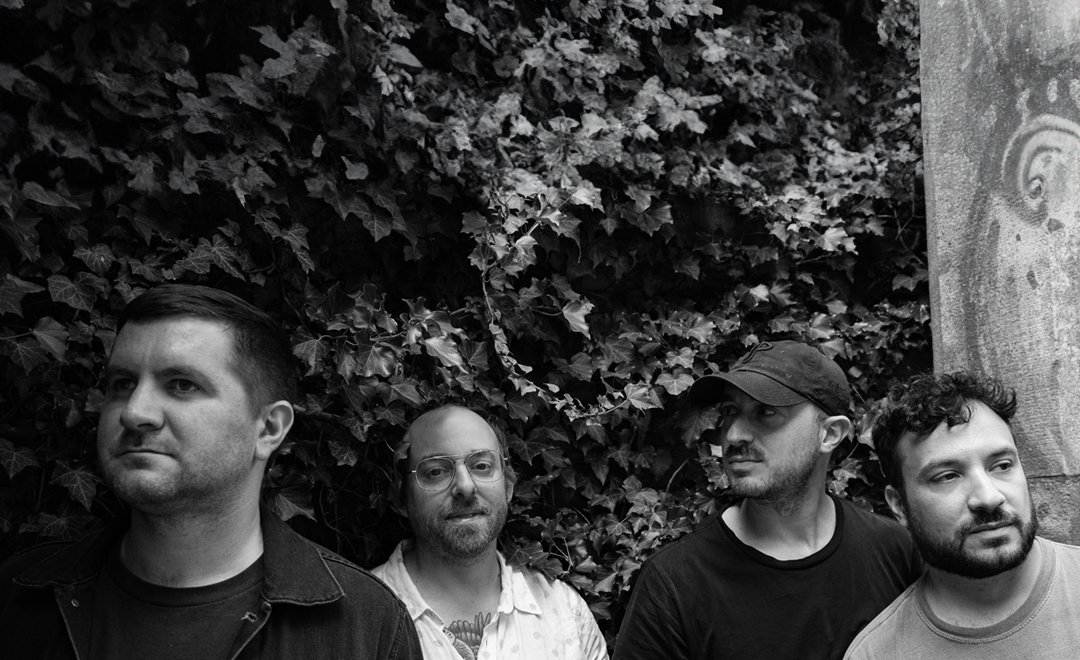Sa, 27. Jan 2024
Mind over Matter presents THE MENZINGERS
At this point, the Menzingers are an absolute institution. The Philadelphia punk legends’ multi-decade reputation as road warriors with an unbeatable catalog is cemented as hard truth—and their seventh album, Some Of It Was True, stands as their most immediate-sounding and energetic record to date. The follow-up to 2019’s sensational Hello Exileaccomplishes the daunting task of capturing the Menzingers’ distinctive live energy in the confines of the studio, resulting in a sound that’s both rich, raw, and complementary to the group’s increasingly prismatic songwriting approach. More than 15 years in, the Menzingers are still holding their listeners square in the immediate present, and Some Of It Was True documents that power in thrilling fashion.
Some Of It Was True comes after the longest gap between Menzingers records to date—a gestational period brought on by the Hello Exile-era tour schedule’s delays due to the COVID-19 tour industry shutdown. “We weren’t really writing new music yet,” Greg Barnett explains. “We were talking about it, but we were honestly just happy to be out and touring again.” The acoustic reworks of 2020’s From Exile followed, as well as Barnett’s solo record Don’t Go Throwing Roses at My Grave from last year, which was when Some Of It Was True started to come together.
“We turned down any offers at that point because we needed the time to write,” Tom May explains while discussing the writing and recording process, which technically started while on the road and continued in intensive fashion while the boys were back home. “We’d go out on tour, come home, and be in the practice space writing our asses off five days a week,” Barnett says. We had to learn to trust our instincts, which is the hardest thing to do when you’ve been in a band like this for so long. You get caught in your ways! It took a while to trust ourselves, but when we did, it was an amazing feeling.”
Making the process easier: Grammy-nominated producer Brad Cook (Bon Iver, the War on Drugs, Waxahatchee), who joined the Menzingers in El Paso’s legendary Sonic Ranch studios and lent his incredible ear for raw, immediate sound to help the band achieve Some Of It Was True’s in-the-room live feel. “The Menzingers are as real as it gets,” Cook says on his time in the studio with the band. I had an absolute blast working with these guys and was moved to tears many times. They are truly dedicated to artistic growth, and to each other, in ways I found both refreshing and beautiful. I am now a lifer.”
“Brad massively changed the way we were approaching the record,” May says. “We were able to bust out a ton of songs during the last part of the recording process as a result. We’d talk about music and develop a vocabulary about how to work together, and that made us embrace chasing the feeling instead worrying about locking in things immediately.” “We wanted to make a fun record and write songs that we wanted to play live, and that’s exactly what we did,” Barnett adds. “We’ve always said that we want every album to sound live, but we never recorded an album live before. This was the first time we committed to that idea. We wanted to sound like how our band sounds onstage.”
Lyrically, Some Of It Was True is a showcase for how the band’s songwriting has expanded beyond their own personal experiences, drawing from what’s happening around them and the lives of those who keep this world’s lifeforce pumping. “Not everything has to derive from your own life,” Barnett explains. “We have the creative license to look around at our friends and family and write through their perspective. Everyone’s gone through so much.” “We started this band when we were teenagers, and we’ve been at it for a while—and we’re a punk band, which usually represents a lot of youthful energy,” May adds. “We’re getting older now, so the last thing we wanted to do was re-do anything we’ve tried in the past.”
Case in point: The anthemic burn of first single “There’s No Place In this World For Me” clicked into place after Barnett met several fans during a European tour stop who fled from Russia in opposition to the war. “They were the epitome of the song—they had nowhere left to go,” he remembers. “They were my main focus when it came to finishing the song, it was really inspiring.” More broadly, the song addresses the push and pull of life on the road, and how growing older plays into that evolving dynamic: “It’s about that feeling of sitting at home and thinking, ‘How much fun would it be to be in Berlin with your friends right now?’ And you get there and think, ‘Man, I just want to be home.’ The older you get, the more you feel that way, and this song is about trying to find that balance when it comes to where you are in life.”
Elsewhere, “Try” swaggers with a slight power-pop influence, while the May-led “Nobody Stays” soars with a hard-driving edge, as his bell-clear vocals dig deep into the feelings that accompany watching things—and people—disappear over time. “We’ve lived in this city for a long time as we’ve seen people come and go,” he recalls. “Some people, you’ll never see again—or, maybe, even know what happens to them again. Instead of yearning, we’re approaching acceptance of those changes in our lives. I miss a lot of those people, but it’s OK that they’re gone, too.”
The passage of time and how things change are, of course, topics that are always on peoples’ minds—but when it comes to Some Of It Was True, the Menzingers are kickstarting a new era in their already illustrious career by tapping into the energy that brought the band to life in the very beginning. “This record just feels different for us,” Barnett explains. “It’s a really important one in our catalog, and a pivotal moment in our history. We have the liberty of our fans growing with us now, and after writing these lyrical songs about where we are in life, we decided to take other peoples’ stories and make something bigger out of it.”
“It brought us back to our energetic side as a band,” May concurs. “We got to let loose, which is what drew us to the energy of being in a band in the first place. This is a live band—why shouldn’t we record live songs? As a result, we’re back to why we started this band in the first place.”





-thumbnail-150x150.jpg)




